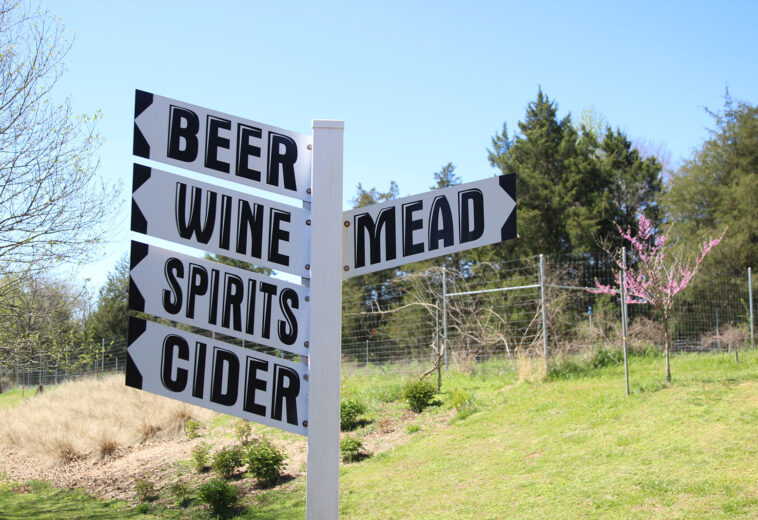Article:
Your Invaluable Resource from 5 West Magazine
BY ELIZABETH BRIGNAC
The Basics
Welcome to Western Wake! Here is some basic information along with links to help you get started here.
The Towns
Most towns in Western Wake (and many in Wake County as a whole) are in transition. While these were small towns through most of the 20th century, high quality of life ratings, good schools and job opportunities in Research Triangle Park have made these towns some of the fastest-growing places in North Carolina. As their populations double and triple in size, this is a period of both excitement and nostalgia for area residents, who enjoy the fruits of municipal expansion in the form of parks, entertainment and cuisine opportunities; growing cultural diversity; new town festivals; classes and resources; and other benefits. These changes, however, have also led to new challenges in terms of traffic, parking, reduced farmland, the need to protect green space, and other issues related to sudden, intense growth.
Apex: Apex began as a railroad town and is now the second-largest of the five major Western Wake towns, with about 76,000 people and a growth rate of over three percent.
Cary: For many years a small railroad town, Cary is now the biggest city in Western Wake, with about 185,000 people.
Holly Springs: Holly Springs grew up around freshwater springs in the 19th century and now has a population of about 50,000—a 40% increase over the past 10 years.
Fuquay-Varina: In 1963, the town of Fuquay Springs merged with Varina to become Fuquay-Varina. As a result, the town has two downtown areas. Known for the historic mineral springs around which Fuquay Springs grew, Fuquay-Varina now has a population of about 47,000.
Morrisville: With about 33,000 residents, Morrisville is the smallest of the five Western Wake communities profiled here. Originally a small railroad town, Morrisville today is known for its strong population of residents from India and other South Asian countries.
Research Triangle Park (RTP): The Research Triangle refers to the area delineated by the cities of Raleigh and Durham and the town of Chapel Hill, each of which is home to a major university (North Carolina State University, Duke University and The University of North Carolina at Chapel Hill, respectively). In 1959 North Carolina established the area making up the center of this triangle as Research Triangle Park, with the goal of building the economy on the skills of our area’s university graduates rather than losing them to jobs in other states. Today, RTP is home to hundreds of companies on the cutting edge of technological research and development in many different fields. It sits on 7,000 acres of unincorporated space owned and run by the Research Triangle Foundation, a nonprofit organization.
Some helpful websites:
• Duke Energy: duke-energy.com
• The North Carolina Department of Motor Vehicles: ncdot.gov/dmv
• Town of Apex: apexnc.org
• Town of Cary: carync.gov
• Town of Fuquay-Varina: fuquay‑varina.org
• Town of Holly Springs: hollyspringsnc.gov
• Town of Morrisville: morrisvillenc.gov
• Wake County: wake.gov
• Wake County Public Schools: wcpss.net

Pick a Side!
Most communities divide—genially, but also passionately—on certain local issues. The Triangle is no different. As you acclimate here, find opinions on these subjects so you can hold your own in these conversations.
College Sports (especially basketball)
The three big university teams in the Triangle are The University of North Carolina at Chapel Hill Tar Heels, the Duke University Blue Devils and the North Carolina State University Wolfpack. If you’ve moved here from out of state, you may have followed UNC–Chapel Hill and Duke sports more closely since they both have wider national followings. But in Raleigh and Western Wake, you’re likely to find more Wolfpack fans than fans of either of the other teams, because N.C. State is based in Wake County.
The merits and records of each team and its players come up a lot in local conversation. Pick a team and don some Wolfpack red or a specific shade of blue—light blue for the Tar Heels or a darker blue for the Blue Devils—during sports seasons. Even if you’re not a sports fan, you might find it helpful to remain at least peripherally aware of what’s going on with these teams, especially in basketball.
Barbecue
North Carolinians love our barbecue, and we have strong opinions about it. Many restaurants around here serve barbecue, so it’s a good idea to go to a few well-regarded places and see what kinds you like.
A major debate topic is eastern- vs. western-style North Carolina barbecue. All North Carolina barbecue is pulled pork barbecue with a vinegar-based sauce, and both the western and eastern types of sauce usually incorporate some pepper. The main difference is that western-style barbecue (also called Lexington-style because Lexington, North Carolina is famous for this type of barbecue) bases its sauce in ketchup or tomato sauce as well as vinegar, and has a slightly sweeter flavor than eastern-style.
Western-style North Carolina barbecue often uses only the pork shoulder. Eastern-style North Carolina barbecue, on the other hand, is sometimes called “whole hog” barbecue because it uses most parts of the pig. It emphasizes vinegar and spices, but uses no tomato in its sauce.
Because of Wake County’s central location, many of our barbecue restaurants are influenced by both styles of barbecue, and many also offer both types of sauce—though some focus on one type only.

Outdoors in the Garden
Raleigh is in a USDA Plant Hardiness zone of 8a. (It used to be 7b, but was changed to 8a in 2023.) This matters because it affects which plants can survive the winter cold, which goes down to an average low of 10–15 degrees Fahrenheit.
Here are a few resources you might find helpful as you get started establishing a garden:
• NC State Extension: A resource that seeks to extend university research to benefit state residents. The organization offers invaluable gardening expertise—all kinds of information about when to plant, what to plant, which plants are native to this area, common local pests, how to encourage pollinators and almost anything else you can think to ask. They will even test your soil! Go to gardening.ces.ncsu.edu to learn more.
• The North Carolina Botanical Garden in Chapel Hill offers research resources and classes for Triangle gardeners. Go to ncbg.unc.edu to learn more.
• Keep an eye on TALK OF THE TRIANGLE, our online-only content page. We offer bimonthly posts from our gardening expert on how to care for your garden during each season. 5westmag.com/talk-of-the-triangle.
• Check out this vegetable garden planting calendar: content.ces.ncsu.edu/central-north-carolina-planting-calendar-for-annual-vegetables-fruits-and-herbs.
• If you have limited space, here is a good calendar for planting container vegetable gardens: content.ces.ncsu.edu/container-garden-planting-calendar-for-edibles-in-the-piedmont.

Copperhead Snakes
We get a lot of copperheads around here. Copperhead season lasts from spring through fall. Because of their coloring, copperheads can be very hard to spot. If you’re in the woods, or even just in your yard, it’s a good idea to wear shoes and keep an eye out for them—especially in areas with trees, weeds or undergrowth.
Copperheads are medium-sized snakes with copper-brown bodies; dark, hourglass-shaped markings; and distinctive, triangular-shaped heads. If you see a copperhead, don’t attack it—just avoid it. Copperheads usually won’t bother you if you don’t bother them. Even if the snake is just a baby, stay away. Baby copperheads are dangerous, despite their size, because they cannot control how much venom they release.
If you are bitten, contact a doctor immediately. Copperhead bites are seldom fatal if treated properly.
Schools
Most school systems require some patience to figure out. Wake County has the highest population of any county in North Carolina, so its school system is particularly large and complex. Add the large number of charter schools, private schools and even online schools available in this area to the mix, and you may find the educational options here daunting to navigate. Check out our education guide online to help guide you through the education landscape here.
Traffic
While drivers here are not generally aggressive, the constant road construction that comes with the area’s rapid growth can create headaches. You will find that rush hour here gets crowded in the morning with people driving west to their jobs in RTP, and becomes crowded going back into town in the afternoons.
Also
• Please also check out the opening articles for each NewS around town section in this issue. These articles are designed to introduce you to some of the best activities your new hometown has to offer.
• We North Carolinians love our festivals. Here is a link to some of our most popular local and regional festivals: midtownmag.com/north-carolina-festivals.


